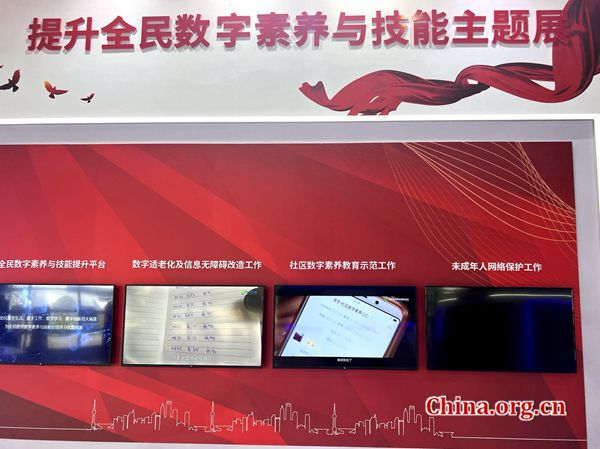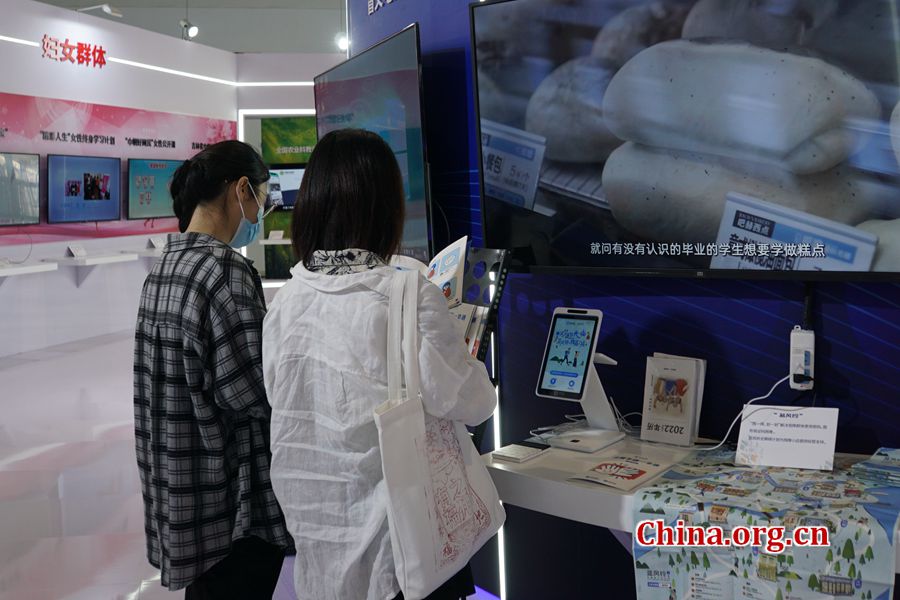Chinese public see improved digital literacy: report
- By Huang Shan
 0 Comment(s)
0 Comment(s) Print
Print E-mail China.org.cn, July 24, 2022
E-mail China.org.cn, July 24, 2022
China has made achievements in raising the public’s digital literacy and skills, with several digital-related indicators ranking among the world’s top, according to a research report released Saturday on the sideline of the fifth Digital China Summit in Fuzhou, Fujian province.

China's netizen population, the world's largest, reached 1.03 billion by the end of 2021, with more than 183 million netizens under the age of 18. It also ranks first in the world in terms of the number and the application scale of massive open online courses (MOOCs), according to the Development Research Report of Digital Literacy and Skills in China released at a sub-forum of the summit focusing on digital literacy and building digital villages.
By February 2022, China had more than 52,500 MOOCs with 370 million registered users. The report says that more than 330 million college and university students have received MOOC credits.
Chinadata.cn, offering online courses on digital-related subjects, was also launched at the summit.
It's noteworthy that efforts and progress have been made in raising digital skills among vulnerable groups.
"By the end of 2021, 173 websites and mobile applications had upgraded their facilities for the convenience of senior citizens," said Huang Peng, chief engineer of the National Industrial Information Security Development Research Center, who shared the data from the research report at the forum.

Various measures have been taken to promote information accessibility and encourage people with disabilities to engage in digital-related professions.
There's also a considerable number of women involved in the digital economy. For example, there are 23.58 million female online shop owners on Taobao.com, of which 3.92 million are from rural areas. About 62.3% of artificial intelligence trainers in Alipay are women, and the proportion is 72% among online customer service staff.
However, Huang said that China still faces challenges in cultivating high-level digital professionals and narrowing the gap between urban and rural residents in digital literacy and skills. She called for broad participation from the government, education institutions, industry organizations, and leading enterprises to pool strengths in the future.
Earlier at the summit, a month-long nationwide campaign was also launched to improve the digital literacy and skills of the general public. The campaign will help to enrich the supply of digital resources, expand digital application scenarios, and improve the talent cultivation system. It will also create a strong atmosphere in which society pays attention to and actively promotes digital literacy and skills, enabling more people to share the benefits of digital development.






Go to Forum >>0 Comment(s)